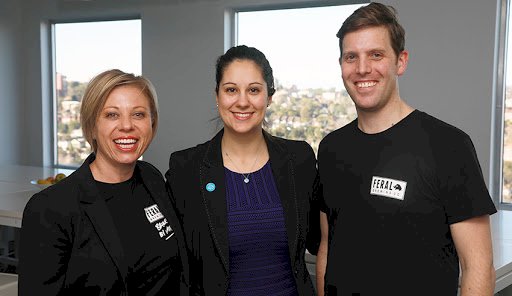Running a successful in-house legal team requires more than simply producing results for the business – it also means ensuring individual counsel feel catered to and accommodated for.

When asked about what works and doesn’t work when it comes to successfully running an in-house legal team, recently on The Corporate Counsel Show, a trio of senior counsel from Coca-Cola Amatil (CCA) – Betty Ivanoff, Richard Conway and Michelle Monteleone – espoused the importance of offering practitioners opportunities whereby they can get a substantive vocational experience.
In an in-house environment, that approach presents some challenges, she ceded, because “there’s only a certain [number] of pathways and we’ve got limitations around us”.
“So, I think one of the things we try and do – and Betty certainly led this from the top – is really look for opportunities to get our team members involved in things that might not be the traditional legal pathway that you may have thought would be the logical place to go, and really look for the things [that] could open up new experiences for our team members and get them involved,” she reflected.
“I think that’s probably the area that I see one of the biggest challenges for us, to make sure we’re actively being cognisant of.”
Part of the approach, CCA deputy group general counsel Mr Conway (pictured, right) added, is to cater to the idiosyncratic needs of each lawyer.
“[When it comes to] what works and doesn’t work as a manager, you have to think about in the individual level of the particular lawyers, because there [are] some lawyers in the team who are very independent,” he explained.
“They want to make decisions on their own, and micromanaging or being heavily involved in telling them how to do what they’re doing, just won’t work with them, whereas there are other lawyers who want a little bit more of a safety net. So, you need to be flexible to what the team members need.”
More specifically, it is “critical” to allow in-house lawyers to write their own script, where applicable, so as to get the most professional value out of them and hopefully instill institutional loyalty.
“[One of our legal counsel is] working two days a week for us and she spends three days a week working on her own business. And we didn’t know when that started off if that would work or not. I think you just have to be open-minded and give something a try. We were open with her that that’s what we were doing. We were giving it a go and we would review it,” he said.
“It’s been, I think, a win-win for everyone in terms of the way we could talk about how we could make that work for [the business] and for her.”
It should be the same with all team members, Mr Conway continued, in that senior leadership shouldn’t “spend a whole lot of time telling people in the team how they have to work”.
“We spend more time trying to set what the expectations are, how what we expect in terms of business engagement. And then it’s up to team members to figure out if that’s going to be on the phone, if it's going to be in the office, et cetera, and figured that out around their personal life.”
To listen to Jerome’s full conversation with the team from Coca-Cola Amatil, click below:

Jerome Doraisamy is the managing editor of professional services (including Lawyers Weekly, HR Leader, Accountants Daily, and Accounting Times). He is also the author of The Wellness Doctrines book series, an admitted solicitor in New South Wales, and a board director of the Minds Count Foundation.
You can email Jerome at: